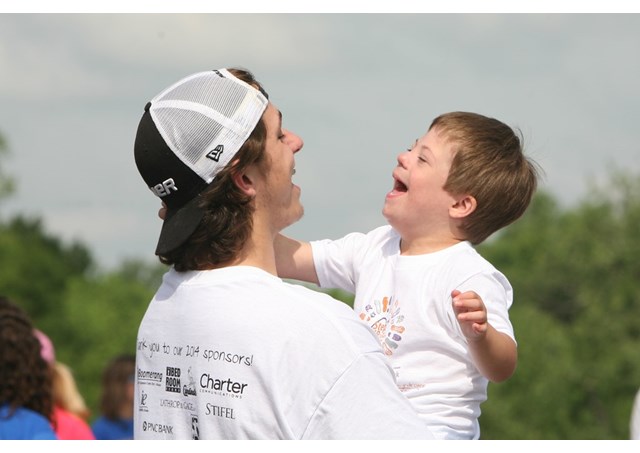
World Down Syndrome Day calls for inclusion

(Vatican Radio) Monday the 21st marks World Down Syndrome Day, a day aiming to raise awareness about what Down Syndrome is and how people with Down Syndrome can play vital roles in our lives and communities.
The date March 21st – the twenty first day of the third month – signifies the triplication (trisomy) of the 21st chromosome, the defining and unique characteristic of people with Down Syndrome.
To hear more about this year’s holiday, Sophia Pizzi speaks to Anna Contardi, the National Coordinator of the Italian Association for People with Down Syndrome.
About this year
The theme this year is “My friends, my community,” which “highlights the importance of the inclusion of the people with Down Syndrome in society and in normal life with other people,” Contardi says. Last year the theme was “work inclusion,” while this year focuses more on general inclusion, which Contardi believes is an important message for everyone.
“The visibility of the day comes from the activities of the different organizations in different countries,” Contardi explains. Some countries post videos and advertisements online, some work with congress, and others host events or games for communities to participate in. In Rome, for example, schools with Down Syndrome students chose a movie about the life of people with Down Syndrome to watch and discus in classes.
Problems of the marginalized
“In each country, the problem of the marginalized is different,” Contardi says. It depends heavily on the culture and the organizations within each society. Italian law of inclusion, for example, has allowed for advancements at a young age, but “there are still problems in adult life.” Many individuals with Down Syndrome face issues in the job market or finding care services at an older age.
“The message this year is important because it emphasizes the responsibility of all people in society, not just the institutions,” she says.
Down Syndrome in the job market
“There are different levels of disability in people with Down Syndrome,” Contardi explains. Many have good access to jobs and sports, while others have a more serious problem and need additional assistance.
“In the last years, we have seen new access and new opportunities for the people with Down Syndrome because the view of other people is changing,” she says. “If you look at a person and think they cannot do anything, then obviously this person has less of a possibility to offer a contribution to society. But if the people look at the individuals with Down Syndrome thinking that they can offer something valuable to the society, then the people with Down Syndrome will be able to offer more and better express who they are.”
Looking into the future
Looking ahead, Contardi thinks there can be more inclusion of people with Down Syndrome in general society.
“All over the world there is a very big pressure to include children in schools because we have seen that mainstreaming the children is the best for the individuals and for the society,” she says. In the coming years, she expresses her concern for the growing ages of people with Down Syndrome, saying they must work more on job and residential opportunities.
| All the contents on this site are copyrighted ©. |


